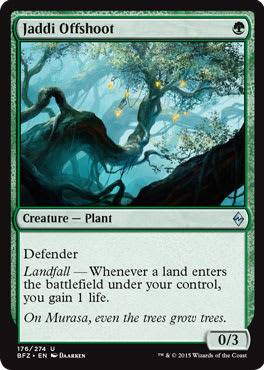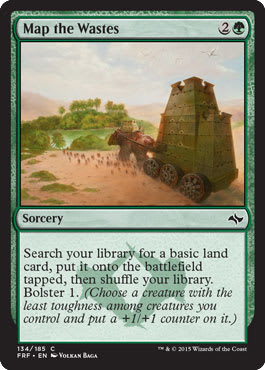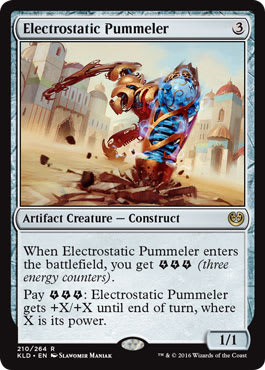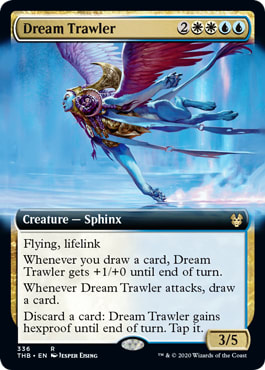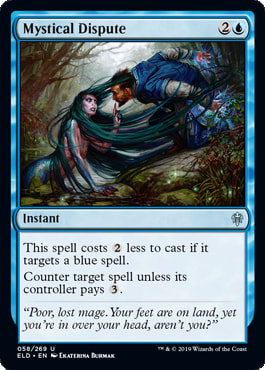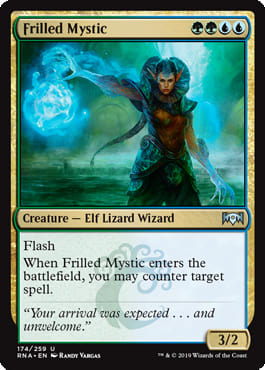The Magic: the Gathering World Championships start today, and while it's going to be a phenomenal event in a beautiful location pitting 16 of the world's absolute best Magic players against each other, it's not actually going to be that useful to you as a Magic player if you're looking for a decklist for your next FNM, MTG Arena, or SCG Tour event.
Wait, what?
Jim, you're telling me that I won't find success by copying the decklists of the literal best players in the world playing the most important event of the year for life changing money and a career altering title? How could these lists not be the literal best of the best?
Yes these players are the best of the best and you will learn a ton by watching them play at the top of their game against the most difficult competition, but gameplay and decklists are two very different worlds in Magic. Watch the games, see how they play, learn everything you can - there isn't a higher level of play to watch than the World Championship - but please don't just cut paste those decklists.
Why?
The answer is simple really:
The World Championship is a very different tournament than most others.
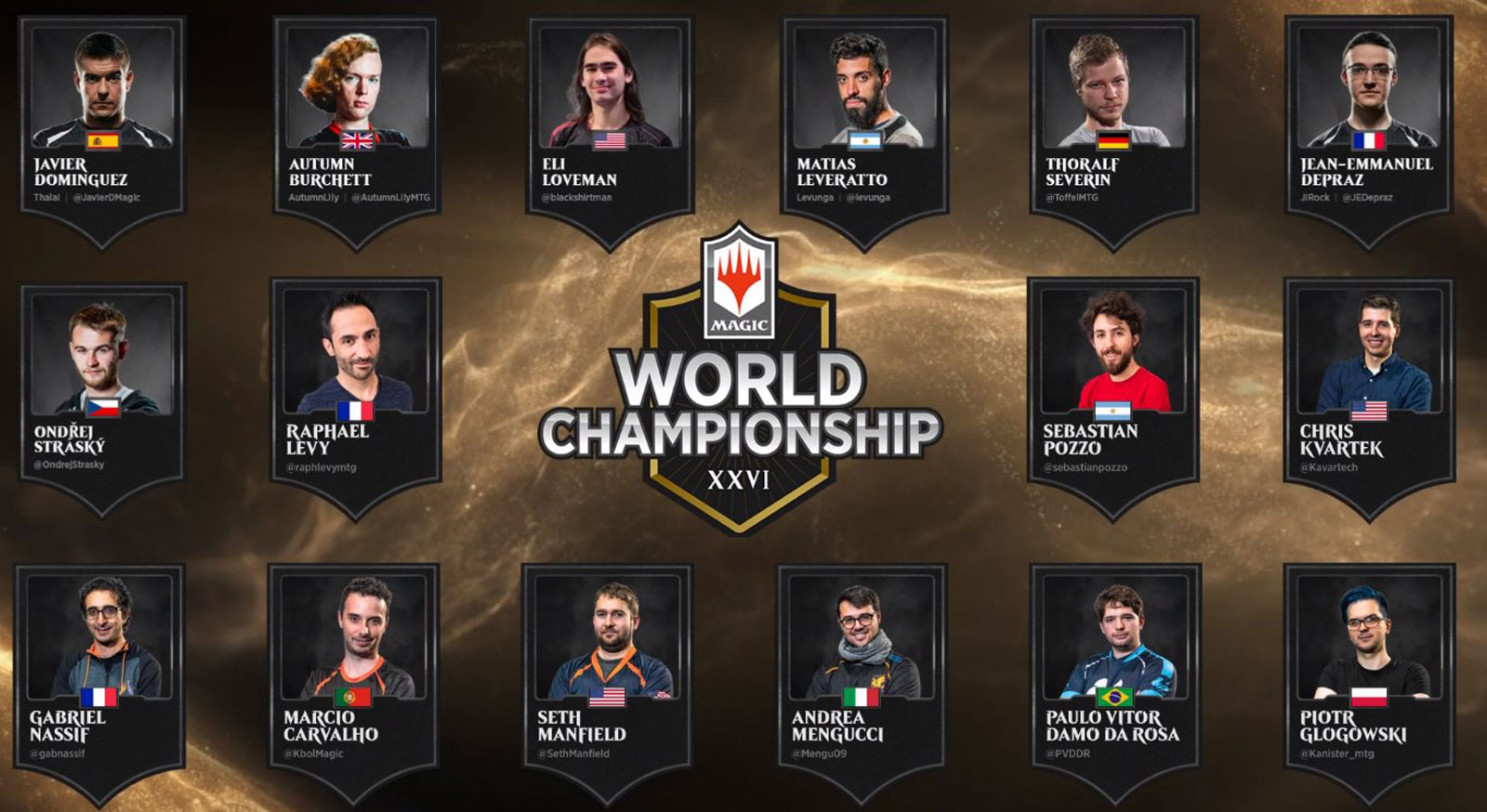
Unlike most events which have anywhere from 20 to 2,000 players that could be anyone of any skill or experience level, the World Championship is a very select group of predetermined players that is a known quantity well in advance of the event. These players are the best in the world, with loads of experience playing against each other and a wealth of information based on their tendencies and what types of decks they like to play.
When a player submits a decklist for the World Championship, they aren't trying to build the best Magic deck they possibly can in a vacuum; they are trying to build a decklist to beat the other 15 players in the event.
While Worlds used to be a large Pro Tour-style event back in the day, in recent years it has switched over to a smaller and more exclusive event, dropping all the way down to 16 players this year. In a lot of ways, the current World Championship structure is fairly similar to the SCG Tour Player's Championship, with a very small and well known 16 player field.

"Oops! How did this get in here?"
I'll have to ask the editor how that picture got in here... it wasn't me, honest!
When I won the SCG Tour Player's Championship in 2015, I did so with a deck that frankly wasn't very good.
Naya Ramp | Standard | Jim Davis | 1st Place SCG Tour 2015 Player's Championship
- Creatures (18)
- 2 Den Protector
- 2 Dragonlord Atarka
- 2 Oblivion Sower
- 4 Hangarback Walker
- 4 Jaddi Offshoot
- 4 Ulamog, the Ceaseless Hunger
- Planeswalkers (4)
- 4 Ugin, the Spirit Dragon
- Sorceries (13)
- 2 Sylvan Scrying
- 3 Map the Wastes
- 4 Explosive Vegetation
- 4 Nissa's Pilgrimage
- Lands (25)
- 1 Mountain
- 1 Plains
- 10 Forest
- 1 Haven of the Spirit Dragon
- 4 Sanctum of Ugin
- 4 Shrine of the Forsaken Gods
- 4 Wooded Foothills
- Sideboard (15)
- 1 Den Protector
- 1 Desolation Twin
- 1 Dragonlord Atarka
- 2 Hallowed Moonlight
- 2 Radiant Flames
- 3 Rending Volley
- 2 Roast
- 1 Void Winnower
- 2 Winds of Qal Sisma
For god's sake I had four Jaddi Offshoot and three Map the Wastes in my deck!
But the point wasn't to build a good deck; the point was to beat the small field of decks I expected. Jeskai Black, a four color midrange deck based around Treasure Cruise, Jace, Vryn's Prodigy, and a swath of great removal like Kolahgan's Command was the best deck at the time, with other midrange decks like Abzan Aggro also popular. While my Ramp deck had very little chance of beating an aggressive Red deck, I bet that most players in the event would bring the best decks and try super hard to out tech and midrange each other.
I was right and fortunate with my pairings, leading to me beating two of the best players in the event in the semi-finals and finals both playing Jeskai Black - Brad Nelson and Todd Anderson.
Joe Lossett had a very similar run in 2016, playing a way off the radar Electrostatic Pummeler deck that excelled at beating Aetherworks Marvel decks and not much else. Aetherworks Marvel decks were by far the best decks in that format and Joe got to pick off a handful of them on his way to the trophy.
I'm sure players picked up both my and Joe's deck after our respective wins and had a really difficult time winning the wide variety of matchups they faced at their FNM or on Magic Online. They probably just assumed we both got really lucky (hey, we did!), but the reality is that our decks were built for a particular metagame and event that didn't really exist anywhere else.
So How Does This Help Me?
Now you're probably asking yourself...
"Great Jim... who cares? There's very little chance that I, as an average Magic player, will play in either The World Championships or a SCG Tour Player's Championship, so why should I care other than to just not play these decks card for card?"
It's a very good question, but this is an example of the difference between being given a fish and learning how to fish yourself. Both my and Joe's decks, as well as all the decks from this World Championship, are a phenomenal lesson in metagaming. By looking at the choices each player has made, we can see what their thoughts about the metagame were.
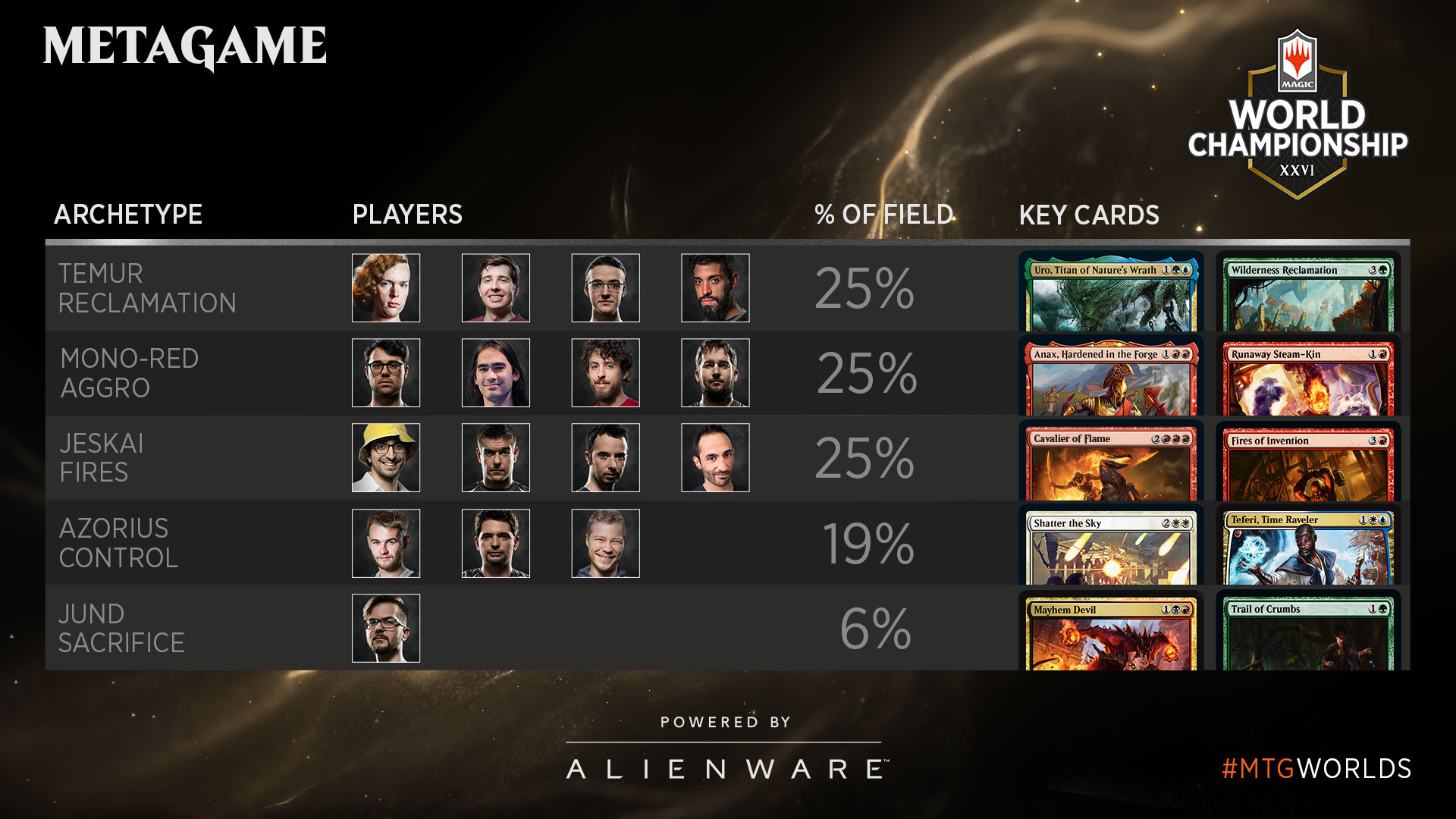
Furthermore, by looking at the overall field we can see how right or wrong those thoughts were.
Mono Red Aggro | THB Standard | Seth Manfield, Magic World Championship XXVI
- Creatures (31)
- 3 Torbran, Thane of Red Fell
- 4 Anax, Hardened in the Forge
- 4 Bonecrusher Giant
- 4 Fervent Champion
- 4 Rimrock Knight
- 4 Robber of the Rich
- 4 Runaway Steam-Kin
- 4 Scorch Spitter
- Sorceries (4)
- 4 Light Up the Stage
- Artifacts (3)
- 3 Embercleave
- Lands (22)
- 18 Mountain
- 4 Castle Embereth
Former World Champion Seth Manfield registered Mono-Red Aggro for this year's World Championship, but do you notice something different between his list and the lists you've played against on MTG Arena?
Seth isn't playing Shock! The only realistically maindeckable burn spell in Standard and Seth isn't playing it in his Mono-Red Aggro deck! Is he a madman? Well, no, he's actually just done a phenomenal job of metagaming.
If you look at the metagame breakdown above we can see that there are very few small creatures to Shock in the field. Shock is woefully inadequate against Temur Reclamation, Azorius Control, and Jeskai Fires, which make up almost 70% of the field! Rather than deal with boarding them out almost every round, Seth has chosen to make his maindeck more streamlined and robust, and put more answers in his sideboard when he needs to kill creatures.
Azorius Control | THB Standard | Paulo Vitor Damo de Rosa, Magic World Championship XXVI
- Creatures (2)
- 1 Archon of Sun's Grace
- 1 Dream Trawler
- Planeswalkers (6)
- 2 Narset, Parter of Veils
- 4 Teferi, Time Raveler
- Instants (12)
- 2 Mystical Dispute
- 3 Dovin's Veto
- 3 Thirst for Meaning
- 4 Absorb
- Sorceries (3)
- 3 Shatter the Sky
- Enchantments (12)
- 2 Banishing Light
- 3 Elspeth Conquers Death
- 3 The Birth of Meletis
- 4 Omen of the Sea
In the same vein, Paulo Vitor Damo da Rosa's Azorius Control deck looks very different from the list that Zach Allen has been destroying the SCG Tour with for the last few weeks.
Only one Dream Trawler? Maindeck Mystical Dispute? Paulo even has the now "outdated" Thirst for Meaning where most Azorius Control players have cut the card completely. Why? Once again, Paulo isn't trying to build the best Azorius Control deck possible, he is trying to beat the field.
Mystical Dispute is going to be an all star in almost 70% of his matchups, giving him a huge edge in Game 1, and will be a bad Mana Leak he can board out the rest of the time. That's the obvious one, but the real keys are more subtle. Thirst for Meaning was in many of the early Azorius Control decklists, but as they moved more toward Dream Trawler and tap out threats like Elspeth Conquers Death, the instant speed nimbleness wasn't needed.
Paulo clearly expected a metagame full of slower control decks and built his deck accordingly. While Thirst for Meaning may be underpowered if you're looking to tap out, Paulo has a bunch of Dovin's Veto and Mystical Dispute in his maindeck to combat combo and control, making the card draw spell mesh well with his strategy for the expected metagame. Thirst for Meaning may not be a great card, but it's the right card for how he has built the deck.
These sorts of deck shifts based on a perceived metagame are the highest level of deck-building and selection for an event and can give you a monstrous edge in any event.
Metagaming At Your Local Events
Just because you may never play the World Championship doesn't mean you can apply this metagaming lesson to your own games. In fact, I wouldn't be surprised if you've actually played an event very similar in structure to Worlds many times in your life.
Let me ask you, how many players usually frequent your FNM or weekly local store events?
Is it around 16-24 players?
Who are the stronger players at the store?
What do they usually play?
Do you know most of their names?
Do you know what types of decks most of the players favor?
While the World Championships may feel like an Ivory Tower far off in the distance, it actually has a lot more in common with small weekly local events than almost any other event, barring the high skill level of course. You have been gathering, whether you know it or not, information for weeks, months, even years on the players at your local store and you can use that information in the same way that Seth and Paulo came to their deck choices as well.
Metagaming At Larger Open Events
This is harder to do for bigger events, but metagaming still comes into play.
At a Grand Prix or SCG Tour event you know you are going to see a wide variety of decks on the first day of competition, but once you hit day two you are much more likely to play the top decks in the format as well as the top players. Getting through a Modern SCG Tour day two and expecting not to have to play against Matthew Dilks, Daryl Ayers, or Edgar Magalhaes playing Amulet Titan is a fool's errand; you're going to have to beat at least one of them, if not multiple if you want to make the Top 8. This means you can build your deck with that in mind.
For SCG Philly last weekend I played Simic Flash in the Standard seat. While it was not well situated against random aggro decks and I did lose round one and two to Rakdos Sacrifice and 20 1-drop Mono-Red, I also trounced my Azorius Control opponents and was very well set for both the day two and Top 8 metagame. My team ultimately came up a bit short as 6-3 did not make day two, but I was well set for a good run there had we done so. I took my risk of a worse day one in order to maximize my results on day two and in Top 8, giving myself a better chance of spiking the event.
Metagaming On MTG Arena Or Magic Online
Metagaming is perhaps at its most difficult online, because there is no familiarity or event logistics to go through. You can play against anyone, at any time, and the only qualifier is your ranking which is always a moving target anyway. You may be able to catch on to some flavor of the week stuff when a new deck comes out, but realistically your goal is to just build the best deck you can in a vacuum and do the best you can unless you are high in Mythic.
MTG Arena is especially wild as far as the metagame goes, because players who aren't all in with huge collections may only have one or two decks and won't be able to switch when the metagame shifts. This will be even more prevalent at the lower ranking levels. However, on Magic Online the advent of card rental services have allowed players to be very fluid in their deck choices, meaning you see more flavors of the week than you might expect.
Deck Advantage
I like to refer to this concept as "Deck Advantage," because it's an advantage you get before you ever start playing. Playing Magic is hard enough as it is, so taking risks to give yourself the upper hand can be a very valid strategy. This is especially true when the competition is extra difficult, as it will be challenging to straight up outplay your opponents over and over again and preferable to find some sort of edge.
When it comes down to it, if you think you are average or below average in the field, take a risk and try to gain as much deck advantage as possible. If you feel you are above average and already have an advantage in evenly matched games, you usually want to be more conservative with your deck and card choices.
However you choose to swing it, a lot of a match of Magic is decided before you every shuffle the cards. Make sure you're taking every advantage you can take!
















